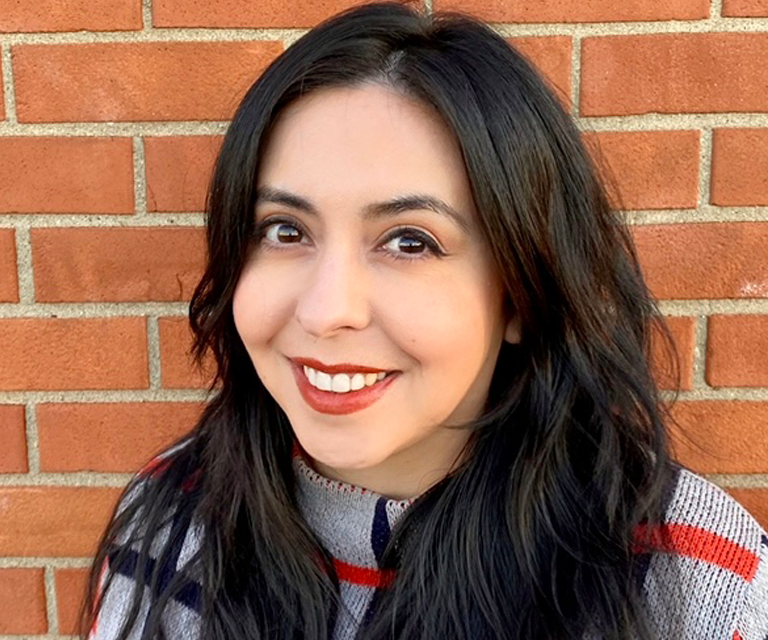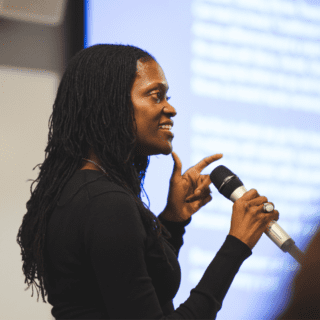
PittEd Justice Collective Spotlight: Christina Huerta
Christina Huerta is a postdoctorate in general pediatrics in the School of Social Work at the University of Pittsburgh. She is working to address the structural barriers that prevent Latinx youth from having equitable access to healthcare. Of particular interest are mental health services, due to the stigmas associated with treatment. Connect with her on social media: Twitter – @Christin_Huerta and Instagram – @drchristinahuerta. Her responses below have been edited for length and clarity.
What does justice mean to you? How do you believe justice is created?
“Justice to me means fairness and opportunity across intersections of race, ethnicity, sexuality, gender identity and expression, socioeconomic status, age, or ability. Justice is a process that requires compassion and education for the experiences of others. Advancing justice requires both individual and collective action. Individually, people should examine their biases and work to educate themselves about how their belief systems influence their actions. Self-reflection of one’s own identity and privilege is vital to identifying ways that you can advocate for others and participate in collective actions.”
What are you currently studying?
“It’s important to acknowledge that there are several structural barriers to mental health treatment for Latinx youth. I am a strong advocate for equitable access to culturally and linguistically appropriate healthcare. Academically, I am interested in investigating whether parental factors like mental health literacy and stigma can act as barriers to mental health treatment for Latinx youth. Personally, I am interested in learning about youth’s role in the Chicano Movement. I feel that it’s especially important with the current political climate to understand the historical acts of resistance that remain impactful to this day.”
How does systemic discrimination, inequity, and injustice impact mental health in Latinx individuals and communities?
“Systemic and interpersonal discrimination among Latinx youth and other Youth of Color can have lasting impacts in many areas of their lives. Internalizing disorders like anxiety and depression are associated with experiences of interpersonal discrimination. If untreated, youth are at increased risk of substance-use initiation, academic performance issues, and social and familial problems that can have effects on their life into adulthood. Exasperating the issue are the barriers to treatment for Latinx youth.”
What questions and conversations centering Latinx mental health have excited or inspired you?
“Through my community-centered work with Latinx youth, I find myself consistently inspired by their perspectives. Many of the youth I have worked with are highly engaged community activists, and I feel that I have a lot to learn from them, which is a great feeling. Youth have so many varied and important interests and innovative ideas about how to bring attention to the topics that they care about.”
Finally, what kind of world are you building? What do you imagine for Latinx communities?
“The Latinx population is growing, yet there is an underrepresentation of our experiences in research, which can have effects on policy decisions. I would like to use research as a tool for policy change to benefit the Latinx community and other historically excluded groups.”
Get Involved
Learn more about the PittEd Justice Collective and sign up for the mailing list.




